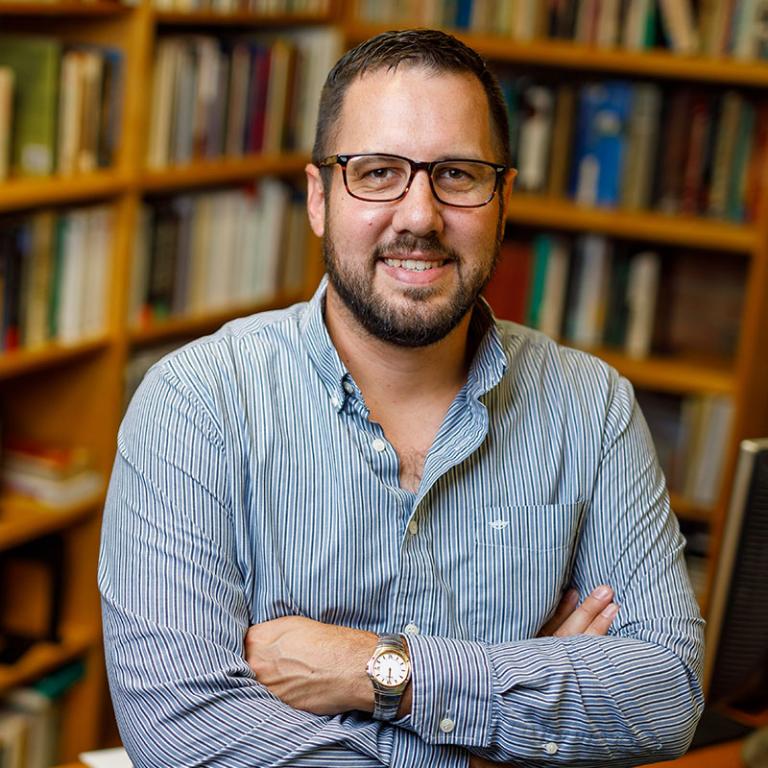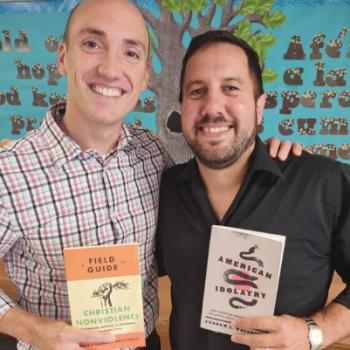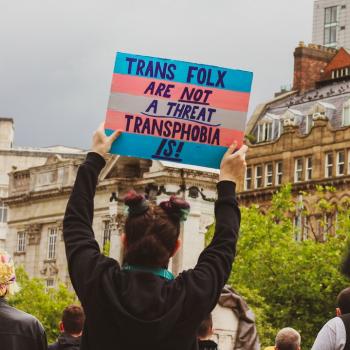In the first week of May, 43% of baby formula supplies were out of stock across the United States. This followed a recall on formula by Abbott Nutrition, after four babies developed a bacterial infection after using the formula—two of them subsequently dying. Since Abbott Nutrition is one of only three major producers of baby formula in the United States, their recall created a nationwide shortage.

Last Thursday, the governor of Texas issued a fiery statement about the federal government’s response to the shortage. But instead of criticizing the federal government for not doing more to address the shortage, the governor used it as an opportunity to scapegoat migrants: “While mothers and fathers stare at empty grocery store shelves in a panic,” he wrote, the current administration “is happy to provide baby formula to illegal immigrants coming across our southern border.”
Never mind that the government has a legal obligation to provide food and drink, including baby formula, to those in its custody. And never mind that those in detention have no ability to purchase formula on their own. And never mind that their babies would thus starve to death without formula being provided by those holding them in detention.
No, to this governor that doesn’t matter because those in US detention centers aren’t US citizens. “Our children deserve a president who puts their needs and survival first,” the governor concluded, “not one who gives critical supplies to illegal immigrants before the very people he took an oath to serve.” A popular TV talk show host summarized this perspective with a pithy question that was used to promote his show: “Why are we feeding illegal babies ahead of American babies?”
White Christian Nationalism
The term “illegal babies” is so ridiculous that this question would be laughable if it weren’t for its horrific implications: that the US government should let babies in its custody starve to death for not being born to US citizens.
What’s especially troubling is that this governor and this talk show host know that their rhetoric will be celebrated by their followers and viewers—many of whom claim to be Bible-believing Christians.
Indeed, to many Christians it’s those Christians who speak against this kind of rhetoric who are considered suspect. Such Christians are told that they’re engaging in Critical Race Theory—“CRT”—or that they’ve exchanged the true gospel for a gospel of social justice.
According to this view, because we are all one in Christ, we shouldn’t talk about divisive, political issues like racial justice in the church. We should simply preach the gospel: that we are each saved by grace through the work of Jesus on the cross. Within the church, our identity is found in Christ. So we no longer see each other through the lenses of race or ethnicity.
This perspective sounds nice until a white governor and white TV host suggest that brown babies deserve to starve. Or until a white nationalist goes on a shooting spree at a grocery store in a predominantly Black neighborhood. Then we realize that the supposed unity and oneness that Christians claim to profess isn’t found in Christ so much as it is in nation. So long as you are a citizen of our nation, typically understood as a white Christian citizen, you are considered a part of “us.”
The “us” is thus better spelled with upper-case letters: US. Anyone who doesn’t fit that vision of “us” is considered part of “them”—those who can be excluded, cast out, and even denied basic sustenance like baby formula.
This is not Christianity. It’s what some have called White Christian Nationalism: the fusion of the Christian faith with a racial and national identity. And it is antithetical to the gospel.
The Gospel of Peace
In Ephesians 2:11–22, the author—traditionally understood to be the apostle Paul—describes the gospel in a few succinct paragraphs. But rather than describing the gospel in a way that denies or erases ethnic distinctions, Paul leans into them.
He does so through three movements in this passage. First, he reminds his recipients—the predominantly gentile church in Ephesus—that they were once the ethnic outsiders. Next, he describes how, through the cross, Christ brought them into a new hybrid identity, one that doesn’t erase ethnic distinctions but makes peace between them. Finally, he describes what this new collective identity means for each of the groups that have been brought together in Christ, especially to those who were formerly excluded. We can look briefly at each of these movements in turn.
In the first paragraph of this passage, Paul piles on all of the negative terms that used to identify his gentile recipients. They were “outsiders.” They were called “uncircumcised heathens,” which would be akin to calling someone an “illegal alien” today. It’s language that’s used intentionally to denigrate others. Not all Jewish people would have described gentiles that way, just as not all US Christians would refer to undocumented immigrants with pejorative labels. But these Ephesian gentiles had probably all heard such language used to describe them more than once in their life.
But not only were they uncircumcised heathen outsiders. Paul writes that they “were living apart from Christ,” “excluded from citizenship among the people of Israel,” “did not know the covenant promises God had made to them,” and were “without God and without hope.” In short, Paul summarizes, they “were far away from God.”
We’re used to hearing the general human condition without Christ described as “lost” or “fallen” or “sinful.” But rarely do we hear a particular people described in such ethnic and political terms as “outsiders” who are “excluded from citizenship.” And yet, right here in this letter Paul describes the gentile Ephesians in just this way. Paul doesn’t erase or ignore their ethnic particularity. He addresses it head on.
Second, in light of their particular ethnic identity, Paul proclaims what the gospel means specifically for these Ephesian gentiles. What do those who are “excluded from citizenship” need? They need to be included! And this is precisely what Jesus does for them, writes Paul.
“But now you have been united with Christ Jesus,” he writes. “Once you were far away from God, but now you have been brought near to God through the blood of Christ.”
How does Christ do this? It isn’t by erasing ethnic particularities. Rather, it is by removing the hostility between previously hostile groups in order to make peace between them.
“For Christ himself has brought peace to us,” Paul writes. “He united Jews and Gentiles into one people when, in his own body on the cross, he broke down the wall of hostility that separated us.”
Jesus suffered the worst hostility of both Jews and gentiles on the cross. And by absorbing that hostility in himself, he put it to death with his own death. Paul writes that, by destroying hostility, Christ makes peace between these two groups, “creating in himself one new people from the two groups.”
This one new people is not a generic melting pot of supposedly colorblind Christians. It’s one people made of two groups. It’s a new “us” that now includes those who were formerly “them.”
The distinction between Jews and gentiles is not glossed over, ignored, or erased. Rather, the hostility is removed so that the two can be reconciled and at peace with one another.
Paul calls this the good news, or gospel, of peace. Far from separating the gospel from issues of racial or social justice, Paul describes how the gospel addresses such issues head on. The gospel of peace is good news to both those gentiles who were far from God and those Jews who were near to God. It creates peace for both.
Paul summarizes this gospel of peace using a classic trinitarian formula: “Now all of us can come to the Father through the same Holy Spirit because of what Christ has done for us.”
Finally, third, Paul addresses the implications of Christ’s work for each group, especially for his gentile recipients. All of the negative terms Paul had used to describe them at the beginning of the passage are reversed.
“So now you Gentiles are no longer strangers and foreigners. You are citizens along with all of God’s holy people. You are members of God’s family.”
The “strangers and foreigners” have become not only fellow “citizens” but also fellow “members of God’s family.” So Paul now addresses this family collectively as a new “we.”
“Together, we are God’s house, built on the foundation of the apostles and the prophets. And the cornerstone is Christ Jesus himself. We are carefully joined together in him, becoming a holy temple for the Lord.”
But, once again, this new “we” does not erase the old “you.” So Paul, as a Jew himself, concludes this passage by again addressing the Ephesian gentiles in their particularity: “Through him you Gentiles are also being made part of this dwelling where God lives by God’s Spirit.”
What Paul demonstrates in this passage is that the gospel is only good news if it is heard by each recipient as good news in their particularity.
To the Black families in Buffalo grieving the loss of their loved ones at the hands of a white nationalist, it isn’t good news for Christians to say, We don’t see color. It is good news to say, Black lives matter.
To the immigrant parents held in detention centers in Texas, it isn’t good news for Christians to say, The gospel isn’t political. It is good news to say, No human being is illegal.
In his letter to the Romans, Paul used the language of Christ’s body to describe the Christian community. That language has the dual function of describing both the unity of the Christian community and the particularity of each member.
“Just as our bodies have many parts and each part has a special function, so it is with Christ’s body,” Paul writes to the church in Rome. “We are many parts of one body, and we all belong to each other” (Rom. 12:4–5).
There Paul is referring to each member’s unique spiritual gifts. But the same logic applies to Paul’s use of the body language here in Ephesians. “Together as one body, Christ reconciled both groups to God,” Paul writes.
The two ethnic groups are united together as one body. Being a part of one body does not mean that we are all identical. Precisely the opposite: if everyone was a foot, there would be no body. Instead, as Paul writes to the church in Corinth, being one body means “all the members care for each other” in their unique, particular circumstances. “If one part suffers, all the parts suffer with it, and if one part is honored, all the parts are glad. All of you together are Christ’s body, and each of you is a part of it” (1 Cor. 12:25–27).
This is the gospel of peace: that, in Christ, we are united in one body, in all of our uniqueness and particularity, so that together we can become the “dwelling where God lives by God’s Spirit” to bring healing to each member and healing to the nations.













